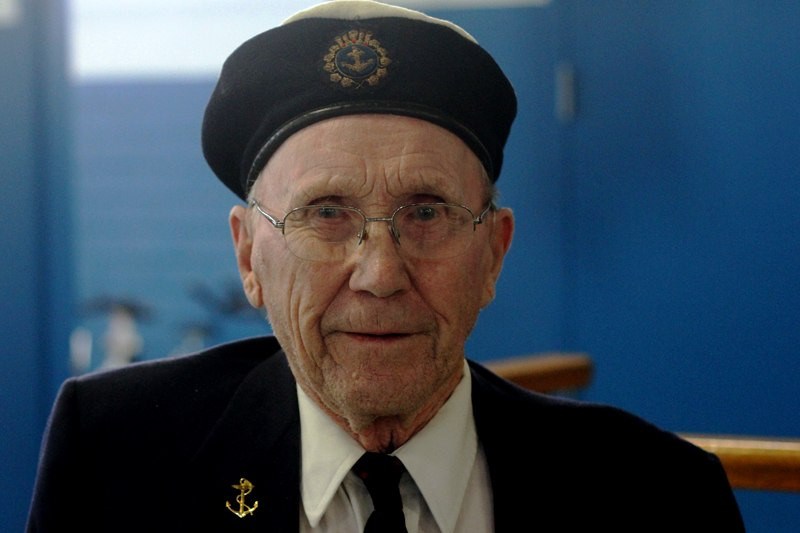THUNDER BAY -- Ernie Takalo considers himself fortunate to be alive.
Nearly 70 years to the day since the Royal Canadian Navy vessel he was serving on was torpedoed, the veteran of the Second World War is thankful he was one of the lucky ones rescued from the waters of the English Channel.
Takalo, now 89, was still shy of his 20th birthday when he was serving as a stoker aboard the HMCS Athabaskan on the evening of April 29, 1944 when it was on the receiving end of a German missile.
He remembers being thrust into the water by the force of the impact.
“I was going up the ladder and flew I don’t know how far. About half were saved,” he said.
He was lucky to be one of them, he adds softly.
The explosion and subsequent sinking claimed the lives of 128 of those aboard. The others, like Takalo, were rescued by the nearby HMCS Haida.
One of the memories that sticks with Takalo the most is the amount of oil that was discharged into the ocean after the Athabaskan was struck. It made his desperate swim for survival even more challenging.
“I was covered in oil. It was terrible if you swallowed any,” he said. “It was hard to swim.”
It is the spirit of Takalo and his fellow Second World War veterans who are commemorated in the annual Battle of the Atlantic remembrance ceremony, which was held at the HMCS Griffon on Sunday.
The Battle of the Atlantic, which was waged from September 1939 until May 1945 was the longest single campaign in the Second World War.
Of the more than 2,000 members of the Royal Canadian Navy who perished during the Second World War, the majority of them lost their lives in the Atlantic Ocean.
When it was sunk, the Athabaskan was patrolling the English Channel in search of German warships in advance of a planned invasion of the French coast.
That invasion, which has been come to known as D-Day, came a little more than one month later.
Takalo is lucky in more ways than one. Other than being hard of hearing, he has endured the passing of time quite well. He has his independence, mobility and retains the memories from is experiences.
However, with each passing year the significance of the ceremony grows as there are fewer of his fellow veterans to share their story and convey the cost of war.
“I think it’s very marvelous that people come out and honour us sailors,” he said. “I think the young people need to understand.”
